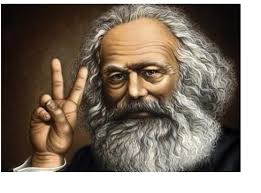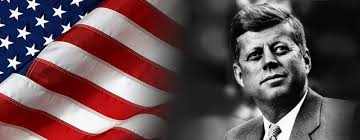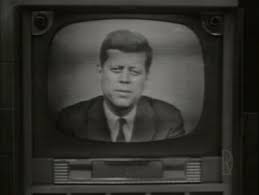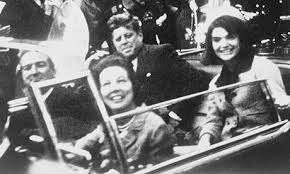The Zeitgeist
 Friday, March 14, 2014 at 03:03PM
Friday, March 14, 2014 at 03:03PM Haredim on the Front Lines

On Wednesday, March 12th the Knesset forever changed the shape of Israeli society by passing a law which will conscript most Haredi (Ultra-Orthodox) young men into the Israeli Defense Forces (IDF) starting in 2017.
Heretofore completely exempt from national service, the proposal for this sea change in Israel spurred no end of opposition and protest from Haredi circles. Because Haredi men did not serve in the IDF they also were not allowed to join the general workforce until middle age. This created a huge bubble of Haredi men learning fulltime – the largest number of 24/7 Torah scholars probably ever in the entirety of Jewish history.
The non national service situation also created a culture of pervasive poverty and dependency on the state for basic sustenance that earned the enmity and resentment of the majority of non-Haredi Israelis who had to both foot the bill to subsidize Haredi life and also send their sons and daughters into the IDF to protect the state and everyone in it, Haredim included. Non-Haredi Israelis felt unfairly put-upon in a country that takes much in taxes and asks many for serious national and personal sacrifices.
Some of the more strident charges against military service emanating from the Haredi community were that “the IDF secularizes its conscripts and will strip Torah from our kids,” “the IDF is a completely secular institution” and that “the Zionists wish to destroy our Torah way of life in general.” This visceral revulsion towards serving in the IDF emanates from the 18th and 19th Century days in Czarist Russia and Poland where Jewish adolescents were forcibly stripped from their homes and communities for 25 years of military duty and often were never seen or heard from again. That Israel is a Jewish state defending Jews from violent anti-Semites doesn’t begin to dawn on the Haredi consciousness.
The Haredi charges of forced secularization in the IDF completely ignore the near universal participation of National-Religious (Da’ati Leumi) or Religious Zionist boys in the IDF. The National Religious young men (and many young women who do some kind of national service as well) typically are at the forefront of elite IDF units while still wearing their kippot, while still putting on tefilin in the mornings, while still keeping kosher and in many cases while still continuing their Torah studies in the hesder yeshiva program that combines IDF service with yeshiva study. Rather than have their religious beliefs stripped from them by the IDF, many a secular soldier has been inspired and brought closer to Judaism and observance by the example of the Kippa Seruga (knitted kippa) boys. Eighteen years of religious education along with a strong home life have equipped the National Religious soldier to go forth into the world while holding on to his values. Haredim ignore these facts because they don’t consider the National Religious to be authentically Orthodox or Orthodox enough. This is often true in the U.S. as well where the American equivalents of Modern and Centrist Orthodoxy find their legitimacy (and that of many of its rabbis) under passive aggressive assault by U.S. and Israeli Haredi institutions, but that’s the subject of another article.
In defense of their non-service in the IDF (and to a lesser extent, non-participation in the workforce) Haredim have stated that their prayer and Torah study offer supernatural protection to the state that is invaluable and incalculable.
The Haredi justification and rationalization of non-participation in national service (prayer and study) may have some validity but for the fact that Haredi synagogues and yeshivot do not pray for the State of Israel or for the IDF. Their siddurim (prayer books) don’t carry the prayers for the State of Israel or the IDF. Moreover a great many Haredi institutions still reject the legitimacy of the very existence of the State of Israel or of any Jewish state before the coming of the Messiah. Sometimes this rejection is quiet and sometimes overt, but there nevertheless.
This hasn’t stopped Haredim from accepting Israeli citizenship, from taking extensive welfare and child subsidy payments or from also accepting financial subsidies for their schools and other institutions from the state. To keep the money flowing and protect their interests, Haredim have political parties that sit in the Knesset, much as the Arabs too have Members of Knesset who disavow loyalty to and the legitimacy of the state. This also arouses the ire of the average Israeli, even more so than with the Arabs because the Haredim, being Jews, are seen as an ungrateful, parasitic fifth-column.
There is an analogy to the willful Haredi blindness to the fact that Israel is the best thing to happen to the Jewish people in more than 2,000 years, that the IDF is probably the most important existential institution the Jewish people have at this time and that G-d’s miracles can be seen daily around every street corner and turn in the road in Israel – that of Balaam and his donkey. In Bamidbar (Numbers) chapter 22 we find the pagan prophet Balaam en route to curse the Jewish people camped in the desert. His faithful donkey keeps veering off the road, slamming into walls and eventually crouching on the ground. Balaam keeps whipping and cursing the donkey until miraculously the donkey talks to Balaam and tells him he’s strayed off the road because G-d’s angel has been blocking the path with a drawn sword in his hand and he’s tried to save his master from this. Only after this incredible experience does Balaam look up and see the angel. The donkey in contemporary times is a metaphor for the masses of the Jewish people who perceive G-d’s miracles and blessings vis-à-vis the State of Israel and the Haredim are Balaam, blind as they travel down the road to G-d’s redemption of the Jewish people.
Back in ancient times and semi-antiquity, the Torah records that the Kohanim (priests) (who were then our most religious class) went out to battle with the army along with the Ark of the Covenant and plenty of trumpets. The Kohanim would bless the soldiers on the eve of battle. The blessing can be found in the Torah. When the Persians allowed the Jews to return to Jerusalem from Babylonian exile and rebuild the Temple, Ezra and Nechemia had no Messiah with them. They created the facts on the ground, Zionistically if you will, to rebuild the Jewish state. The Maccabees were fervently religious Kohanim who fought a 30 year military campaign to free Judaea from religious persecution at the hands of the Syrian-Greek empire.
There is no authentic Jewish tradition of not standing together with the entirety of the Jewish people, of not supporting the army, of not recognizing the legitimacy of the state. These are recent inventions as is much of Haredi life itself – separating themselves from the broader Jewish community in contravention of the words of the Rambam (Maimonides). In Hilchos Teshuva 4:2 he discuses how people who separate themselves from the broader public have the door to teshuva (redemption and repentance) shut before them.
Not praying for the welfare of the state (in this case Israel when in Israel) also contravenes the injunction of Rav Chanina in Pirkei Avot (Ethics of the Fathers) 3:2 where we’re commanded to “pray for the welfare of the government.”
Having Haredi young men enter national service will accomplish two very important things: First, it will slowly start to make Haredim a part of Israeli society so that we’ll be one people again and everyone will share in the responsibilities of citizenship and second, it will expose more secular Israelis to the beauty of religiosity and can only help imbue a greater sense of Jewish traditions and values across all segments of the country.
There’s a long tradition in the U.S. of Quakers and conscientious objectors serving as medics in the armed forces so as to be a part of the great struggle for liberty and freedom even if they were disinclined to fight. There’s nothing wrong with Haredi men serving shoulder to shoulder with their brethren in defense of their homes, wives, children, parents, grandparents and religious institutions. The Iranians, Hamas, Hezbollah and all our other enemies won’t be thwarted by davening (prayer) alone, even though there is a great value to that. There’s an old adage that “there are no atheists in foxholes.” In this case a little foxhole exposure might see Haredi synagogues start praying for the state and the IDF like the rest of the Jewish people now that they’ll finally have some “skin in the game,” i.e., the defense of the country.




